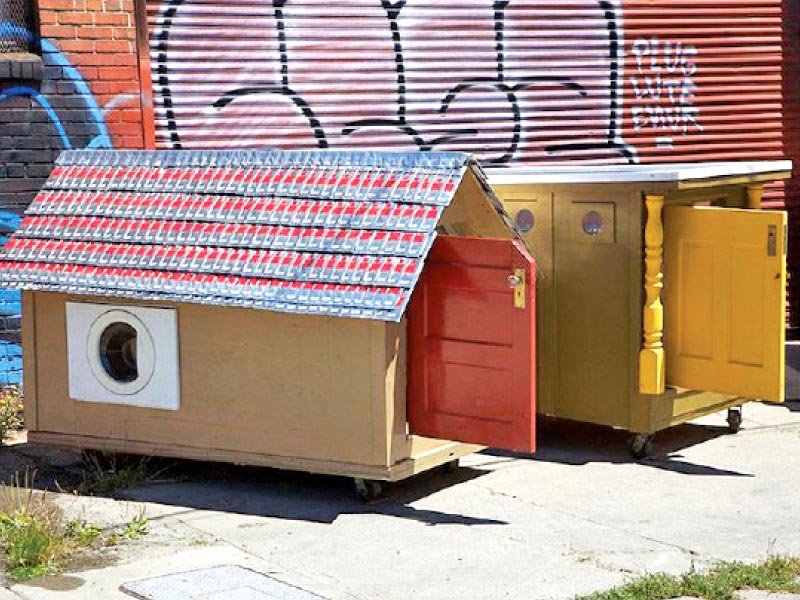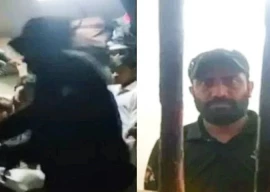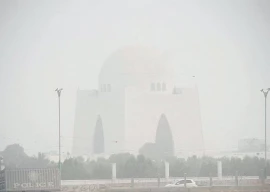
KARACHI:
An artist in California is turning dumpsters into cute homes on wheels for the homeless. Companies like ecopods.ca have started reusing shipping containers by designing them as cheap homes. And yet other companies are interested in turning garbage into electricity. The idea is simple: there are plenty of ways to let the private sector help manage the waste we produce.
The only problem is that in Sindh, the government doesn’t create space for the private sector to do this kind of work. And we, the residents of Karachi, are partly to blame. We believe sarkar or big government must be the provider of services such as garbage collection. But people like sustainability expert Farhan Anwar want us to stop thinking like that.
Anwar, who is a regular contributor to these pages in a column called ‘Elasti(cities)’, has started a non-profit organisation called ‘Sustainable Initiatives’. In order to prove his point, at the NGO’s soft launch on Friday at NED university’s city campus, Anwar organised a discussion on solid waste management. Read: garbage collection.
“Everyone sees the government as the provider of services,” he said. “But the world has since moved on from this outlook.” It is no longer the age of master plans. Instead, we are living in a time when urban planning has different triggers. One is climate change, which is now informing how people and their governments are creating infrastructure and deciding what their cities and communities should be like. The NGO’s flagship programme is Sustainable Karachi to provide a ‘space’ for research, dialogue and collaborative mobilisation. And as any urban planner will tell you, managing your garbage collection is one of the most important features of a sustainable city.
“Nobody knows anything about solid waste management in Karachi,” said Anwar. We don’t know how much is generated, where is it dumped, how much is burned, who is picking it up. The only data we have is eight years old: Karachi generated 5,000 tons of garbage a day seven years ago, according to data collected for the Karachi Strategic Development Plan 2006.
Organic waste tops the list of the kind of garbage we produce. “Why can’t it be turned into compost?” argued Anwar. “It’s not rocket science.” In fact, there is a company that has even turned this into a business: Farooq Compost Fertilizer Ltd. And why don’t we have waste-to-energy plants at our three landfill sites where methane recovery could be an option?
Anwar argues that small scale contractors can fill the gaps. His point was buttressed by comments from sanitation expert Dr Mansoor Ali who contributed a video message to the discussion. He feels that 40% of Karachi’s garbage collection can be done by small-scale collection contractors. Rich neighbourhoods can earn enough to “cross finance” garbage collection in poor neighbourhoods.
It is impossible to see how Karachi Metropolitan Corporation will ever get its act together on solid waste management. For whatever it is worth, we have a Sindh Solid Waste Management Board that was given legal cover in 2013. Anwar felt that it was foolish for the policy makers to create a provincial set-up when Karachi needed its own. “But as such it is not such a bad document,” he added, while handing out copies of the law. The only problem is that it is run by the chief minister, followed by a bevy of secretaries and under secretaries. “It would be an achievement if they met twice a year,” he said with a bitter laugh.
Panellist Prof Noman Ahmed, who runs the department of architecture and planning at NED University, explained why the people at the helm in the Karachi and Sindh governments don’t care about garbage collection for such a large expanding city: On the political front it is an invisible service - if garbage is picked up, people aren’t going to be grateful and credit the political party working on it. And thus politicians basically say garbage collection won’t win elections.
Published in The Express Tribune, June 22nd, 2014.






















































COMMENTS
Comments are moderated and generally will be posted if they are on-topic and not abusive.
For more information, please see our Comments FAQ